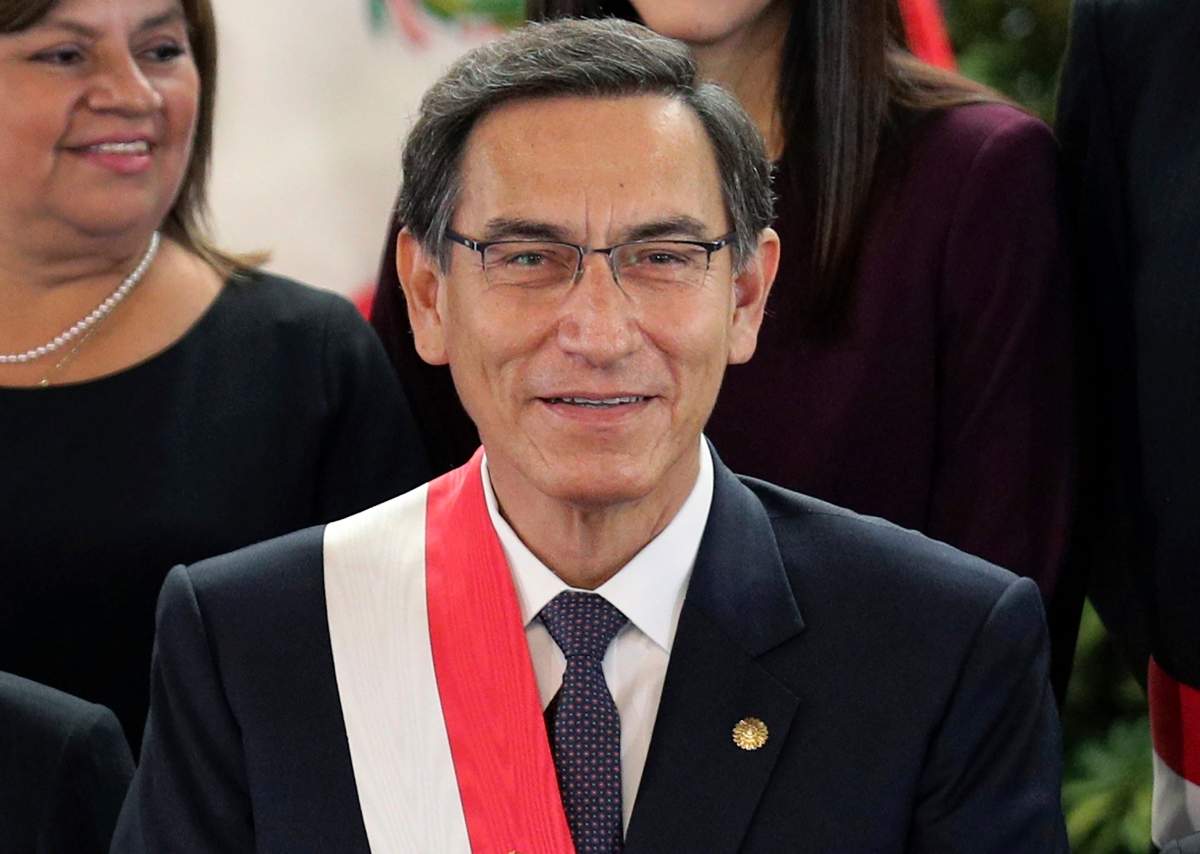Peruvian President Martin Vizcarra faced a fresh challenge to his leadership on Friday after Congress approved a motion to start impeachment proceedings against him over leaked audio tapes and alleged ties to a singer involved in a fraud case.

Whether to remove Vizcarra from office for “moral incapacity” is due to be debated and voted upon in the next week, which risks plunging the world’s second-largest copper producer further into crisis as it battles one of the worst coronavirus outbreaks globally amid its deepest recession in decades. Vizcarra vowed not to resign.
Fifty-two votes from the 130-member Congress were needed to approve the start of impeachment proceedings, and impeachment itself needs 87 votes in order to remove Vizcarra from office. Friday’s vote was 65 in favor, 36 opposed and 24 abstentions.
Lawmakers in Peru’s Congress, a mosaic of parties from the left and right with no overall majority, heard recordings of two private conversations between Vizcarra and government officials about meetings with Richard Cisneros, a little-known singer.
Cisneros, who goes as Richard Swing, was awarded government contracts for motivational talks worth 175,400 soles (US$49,500), which are being investigated by Congress and Peru’s auditor general along with claims of alleged links to the presidency.

Get daily National news
Lawmakers said the recordings revealed Vizcarra attempting to downplay his meetings with Cisneros.

Vizcarra took office two years ago after former President Pedro Pablo Kuczynski’s resignation over allegations of corruption. Last September, Vizcarra faced down a previous attempt to impeach him for incapacity and dissolved Congress.
He told reporters on Friday that the new challenge represented “a plot to destabilize the government.”
“I am not going to resign, I have a commitment to Peru and I will fulfill it until the last day of my mandate,” he said.
Presidential elections are due to be held next year and Vizcarra has already said he will not run again.
“We now hope Vizcarra will come to give his justifications,” said lawmaker Edgar Alarcon, head of the congressional oversight commission who shared the audios in Congress.
Alarcon added that the date for the debate was being discussed but was expected to be late next week.
Julio Ruiz, an economist specializing in Peru for the Brazilian bank Itaú BBA, said the new turmoil risked adding to jitters from recent “market unfriendly” measures, a reference to Congress passing laws allowing Peruvians to withdraw early from their pensions funds, and a separate recent bid to push out the country’s economy minister.
“If this continues to escalate, it could have an effect on recovery,” Ruiz said.
The economy has been hammered by the country’s steadily growing coronavirus outbreak. Peru now boasts the fifth highest case count in the world and is the second most infected country in Latin America, behind Brazil.
According to data compiled by Johns Hopkins University, Peru has seen over 710,000 cases to date, with 30,344 deaths. Cases have grown at wildly modulating levels since late July, at times hitting more than 13,000 new infections in a single day.
(Reporting by Maria Cervantes; Additional reporting by Stefanie Eschenbacher, Writing by Cassandra Garrison and Aislinn Laing; Editing by Will Dunham)
—With files from Global News







Comments
Want to discuss? Please read our Commenting Policy first.